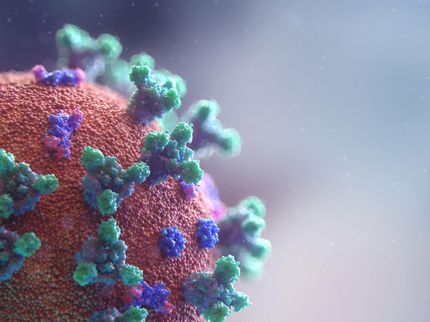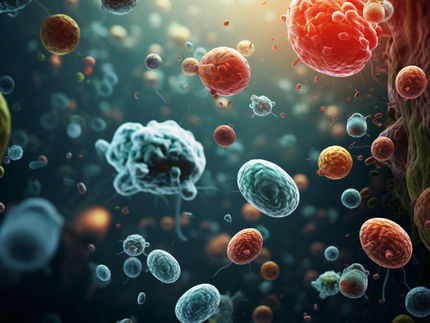UN Food Systems Summit
Huhtamaki welcomes discussions around food waste, safety and accessibility
Advertisement
Taking place in September, the UN Food Systems Summit aims to launch further actions in support of the UN Sustainable Development Goals (SDGs). We believe sustainable food systems are a key component of sustainability, not only in terms of the climate impact, but also on a social level. And food packaging plays a key role in facilitating sustainable food systems by providing product protection and food accessibility.

Huhtamaki
Three key priorities for Huhtamaki
Just over a week ago, the EU Council of Ministers submitted a list of 50 priorities for consideration at the UN Food Systems Summit. Huhtamaki welcomes the discussions and especially on three of the key priorities: 1. the emphasis on reducing food losses and food waste, 2. the importance of food safety, and 3. the need to enable better access to food for all.
Huhtamaki supports the view put forward by the EU Council that significantly reducing the current levels of food losses and food waste is critical in moving towards sustainable food systems. To us, the fact that the carbon footprint of food waste is immense, whilst a significant number of people do not have access to food is not acceptable. To address this challenge, the EU Council has highlighted the need to promote resource-efficient and circular packaging in reducing food waste. We agree that smart food packaging can play a key role in reducing food waste by protecting food from damage and spoilage and by improving the shelf-life of products. We are also committed to designing for circularity whilst maintaining the core functions of efficiency and safety of food packaging.
Of course, it should not be a surprise that the safety of food is a non-negotiable for Huhtamaki. As the EU Council states, ensuring the safety of food provided to consumers is of utmost importance. Not only does food packaging protect food from spoilage, it also reduces the risk of cross-contamination and the spread of disease. Therefore, the hygiene factor of food packaging must be considered when discussing sustainable food systems. The Covid-19 pandemic has further proved the need for these safety and hygiene functionalities.
Ultimately, access to nourishing and healthy food is integral when discussing food systems. It is unacceptable that currently 9% of the global population does not have access to sufficient food.1 The EU Council highlighted that the Summit should encourage effective measures to increase the accessibility and affordability of healthy diets through sustainable food systems, including for vulnerable groups. Food packaging fundamentally facilitates access to food by enabling its transport in high quantities while keeping it safe from spoilage for longer.
What we want to see from the Summit
Food systems have wide-reaching impacts, and as the UN suggests, they affect all 17 Sustainable Development Goals to some degree. Therefore, it is crucial to have factual conversations around the different aspects of these systems recognizing that countries’ infrastructures and resources will differ. This is especially true in waste management and recycling systems. In policy terms this means no one-size will fit all, and that a global framework is therefore likely to be the best way forward, with differing approaches required to achieve the high levels of materials recovery and lower carbon-impact we all want to see.
As the EU Council states in its priorities, in order to better understand the challenges and opportunities associated with the transformation of food systems, evidence-based assessments are needed. Our work on EU legislation, such as the Single Use Plastics Directive, has shown that transformation must be focused on achieving the best overall outcome, using Life Cycle Thinking to assess the social, economic and environmental aspects of sustainability, rather than being tied to a series of separate policy outputs.
1 United Nations Environment Programme (2021). Food Waste Index Report 2021. Nairobi. https://www.unep.org/resources/report/unep-food-waste-index-report-2021
Most read news
Other news from the department business & finance

Get the food & beverage industry in your inbox
By submitting this form you agree that LUMITOS AG will send you the newsletter(s) selected above by email. Your data will not be passed on to third parties. Your data will be stored and processed in accordance with our data protection regulations. LUMITOS may contact you by email for the purpose of advertising or market and opinion surveys. You can revoke your consent at any time without giving reasons to LUMITOS AG, Ernst-Augustin-Str. 2, 12489 Berlin, Germany or by e-mail at revoke@lumitos.com with effect for the future. In addition, each email contains a link to unsubscribe from the corresponding newsletter.
Most read news
More news from our other portals
See the theme worlds for related content
Topic world Food safety
Food safety is at the heart of the food and beverage industry. It ensures that the food we eat every day is not only nutritious, but also free of harmful contaminants. From field to plate, the industry monitors and regulates every step of the process with strict quality controls, advanced testing methods and continuous research.

Topic world Food safety
Food safety is at the heart of the food and beverage industry. It ensures that the food we eat every day is not only nutritious, but also free of harmful contaminants. From field to plate, the industry monitors and regulates every step of the process with strict quality controls, advanced testing methods and continuous research.
Topic world Hygiene
Hygiene is the foundation of the food and beverage industry. Hygiene technology ensures that products are not only tasty, but most importantly, safe for consumption. From advanced cleaning processes to sterile filling techniques, the industry is constantly setting new standards to prevent contamination and the growth of microorganisms.

Topic world Hygiene
Hygiene is the foundation of the food and beverage industry. Hygiene technology ensures that products are not only tasty, but most importantly, safe for consumption. From advanced cleaning processes to sterile filling techniques, the industry is constantly setting new standards to prevent contamination and the growth of microorganisms.





























































